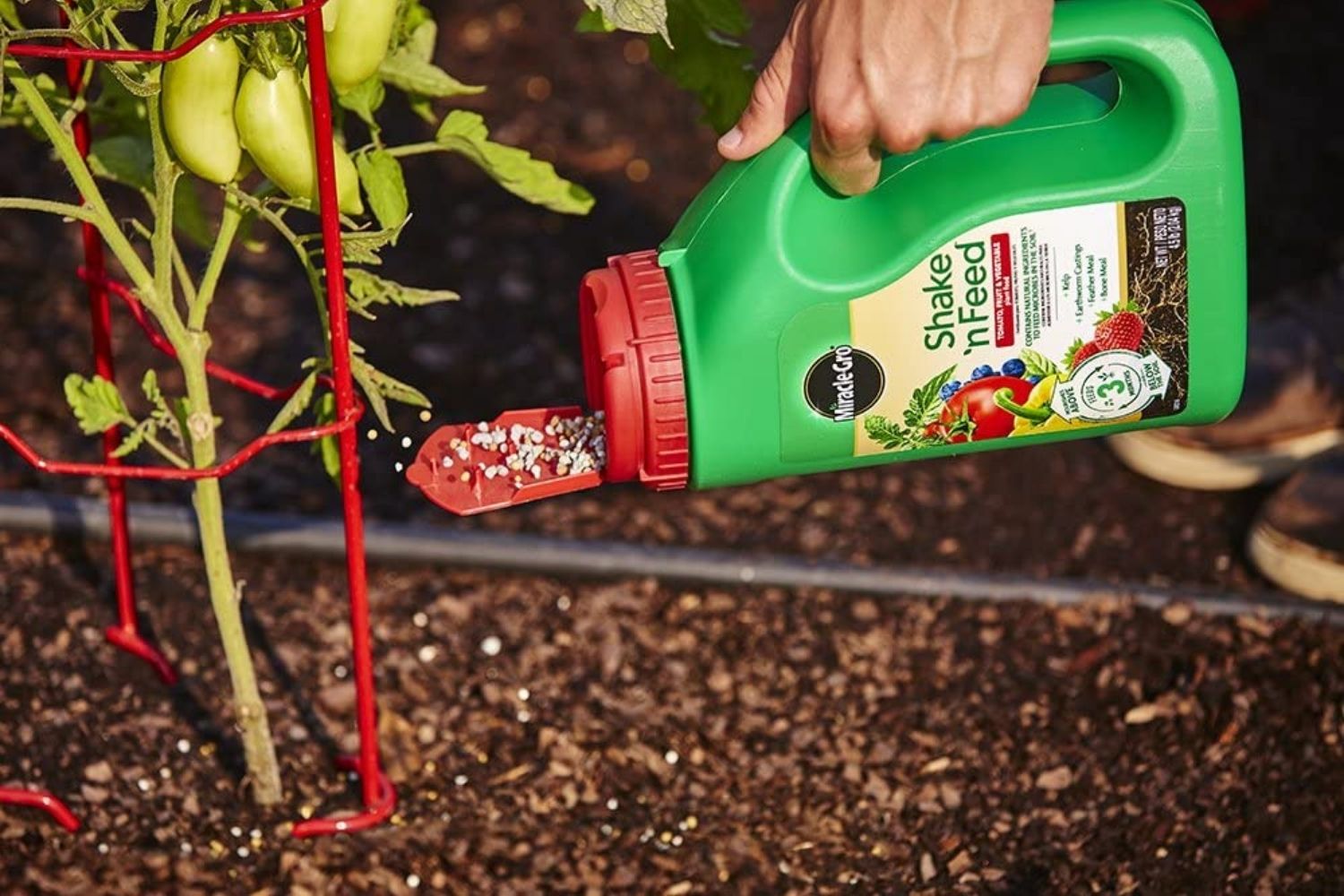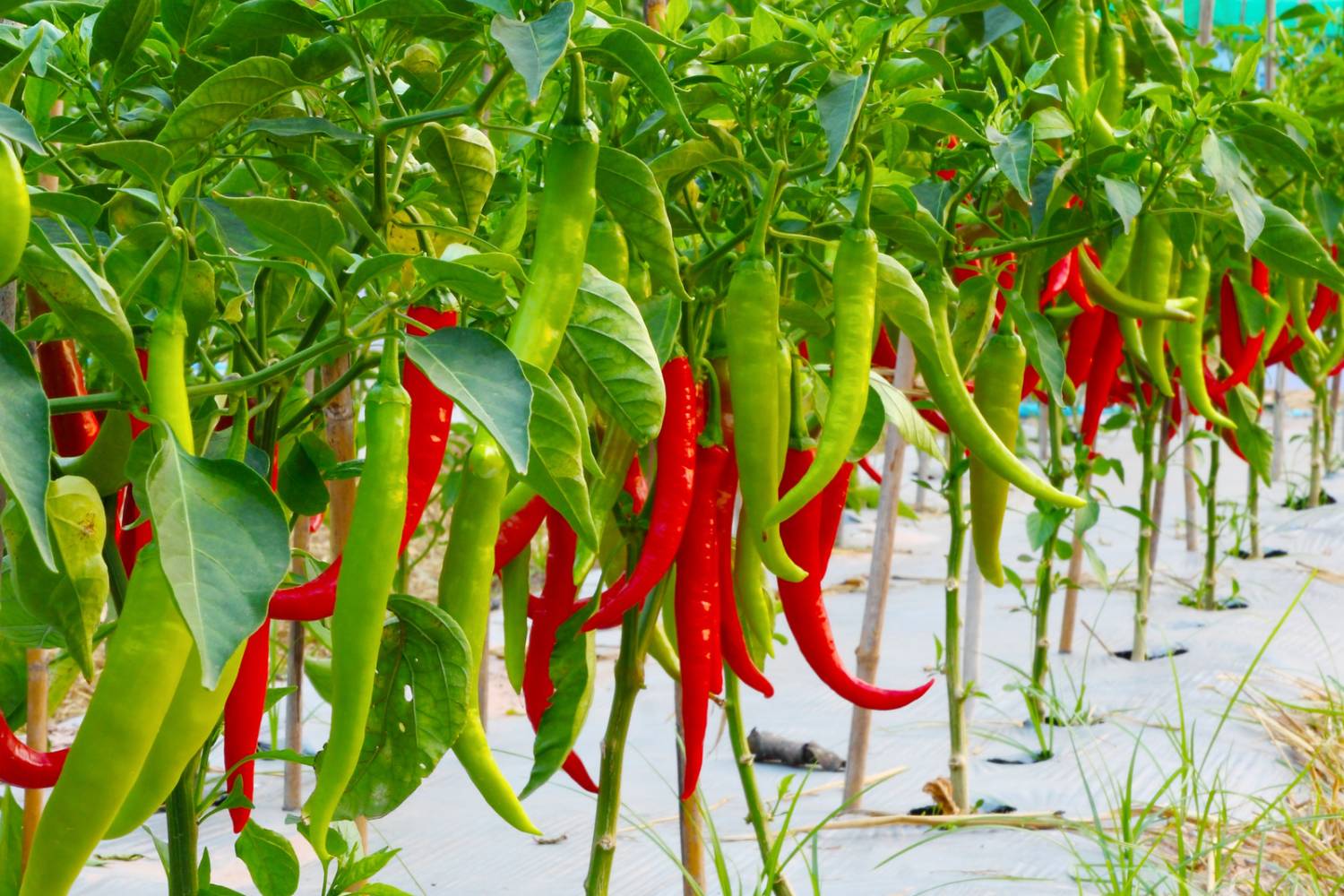Organic Vs. Synthetic Fertilizers: Which Is Best for Supporting Healthy Pepper Plants?
In the world of supporting healthy pepper plants, the choice between synthetic and natural plant foods stands as an essential decision with significant implications. While both options purpose to supply vital nutrients to support plant development, the nuances of their influence on the dirt, plant health and wellness, and the setting stimulate an argument that mirrors throughout the horticulture community. Understanding the unique advantages and possible risks of each fertilizer kind is crucial for pepper farmers looking for to optimize their returns while maintaining a lasting and eco-conscious strategy.
Benefits of Organic Plant Foods
Organic fertilizers provide a lasting and environmentally-friendly strategy to nourishing pepper plants, giving necessary nutrients without using artificial chemicals. These all-natural fertilizers are obtained from organic sources such as garden compost, manure, bone meal, and algae, advertising soil wellness and biodiversity. Unlike synthetic plant foods, natural choices release nutrients slowly, making certain a constant and balanced supply for pepper plants to prosper.
One significant advantage of natural fertilizers is their capacity to improve soil framework and water retention. By boosting soil health and wellness, natural fertilizers promote valuable microbial activity, which aids in nutrient uptake by pepper plants. Furthermore, natural fertilizers decrease the danger of chemical run-off, shielding water sources from pollution and securing the setting.
Furthermore, organic plant foods add to long-term soil fertility by promoting the growth of helpful dirt organisms. These organisms assist damage down organic matter, releasing nutrients in a type that is quickly obtainable to pepper plants. best fertilizers for peppers. By fostering a healthy soil environment, natural plant foods sustain sustainable pepper growing techniques that profit both plants and the setting
Drawbacks of Synthetic Fertilizers
Synthetic fertilizers, in comparison to their natural counterparts, position various negative aspects when utilized to nourish pepper plants, impacting both plant wellness and ecological sustainability. One significant drawback of synthetic plant foods is their propensity to leach nutrients from the dirt swiftly.
Furthermore, the overuse of artificial plant foods can contribute to water air pollution. Excess plant foods not absorbed by plants can remove into water bodies, leading to eutrophication, where algae blossoms deplete oxygen degrees in the water, harming marine life. Moreover, synthetic plant foods are normally originated from non-renewable sources, such as fossil fuels, adding to carbon emissions and environmental degradation during their manufacturing.
Nutrient Absorption Contrast
Effective nutrient absorption plays a vital role in the general health and growth of pepper plants. When contrasting artificial and natural fertilizers in terms of nutrient absorption, natural plant foods have the benefit of supplying a much more balanced and slow-release source of nutrients (best fertilizers for peppers). Organic fertilizers contain a variety of macro and trace elements that are not just useful for the plants yet likewise promote healthy and balanced dirt microbial task, which helps in nutrient uptake. On the other hand, synthetic plant foods often give a fast release of nutrients, which can bring about leaching and overflow, resulting in lower nutrient absorption rates by the plants.
Additionally, organic fertilizers improve dirt framework and water retention capacity, enabling pepper plants to access nutrients extra efficiently. This improved dirt high quality assists in root advancement, allowing check my reference far better nutrient absorption. Artificial fertilizers, although at first enhancing plant development due to their high nutrient focus, may prevent long-lasting nutrient absorption by derogatory dirt wellness gradually.
Environmental Impact Factors To Consider

On the various other hand, synthetic plant foods, although usually even more instantly readily available and focused to plants, can have harmful effects on the setting if not used properly (best fertilizers for peppers). Their manufacturing requires high energy inputs, bring about greenhouse gas discharges and adding to climate adjustment. The runoff of excess synthetic plant foods can contaminate water resources, leading to eutrophication and damaging aquatic ecosystems.
Best Fertilizer Practices for Peppers
To achieve this, it is important to comply with finest fertilizer practices tailored to the specific needs of pepper plants. One essential practice is to carry out a soil examination prior to applying any fertilizers.
Another important technique is to feed pepper plants at the correct time. Normally, peppers profit from obtaining plant food at growing and after that again when they begin to blossom. Over-fertilizing can cause nutrient imbalances and damage the plants, so it is essential to comply with recommended application prices.
Additionally, picking a well balanced plant food with an NPK ratio that suits pepper plants' demands is basic. Eventually, combining organic and artificial plant foods sensibly can aid nurture healthy pepper plants while reducing ecological impact.
Final Thought

Organic plant foods supply a sustainable and environmentally-friendly strategy to nourishing pepper plants, offering crucial nutrients without the use of synthetic chemicals. Unlike synthetic plant foods, natural options release nutrients slowly, making certain a well balanced and constant supply for pepper plants to thrive.
Synthetic fertilizers, in contrast to their natural equivalents, posture various downsides when made use of to nurture pepper plants, influencing both plant health and wellness and ecological sustainability. When contrasting natural and artificial fertilizers in terms of nutrient absorption, organic fertilizers have the advantage of offering a much more well balanced and slow-release resource of nutrients.Moreover, natural plant foods improve dirt framework and water retention capacity, permitting pepper plants to access nutrients much more efficiently.